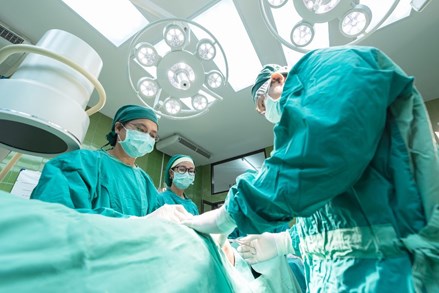In recent years, the demand for medical tourism has increased as individuals look for more affordable options for cosmetic procedures abroad. Among the top destinations for such services are Turkey and Poland, both offering competitive pricing compared to clinics in the UK. However, the UK government has recently issued a public warning regarding the risks associated with undergoing surgery Turkey. This advisory has prompted many prospective patients to reconsider their options, with Poland now gaining favor as a safer and more reliable alternative. In this article, we explore the factors behind the government’s warning and why Poland might be the smarter choice for patients seeking cosmetic surgery abroad.
Rising Concerns Over Patient Safety in Turkey
The UK Foreign, Commonwealth and Development Office (FCDO) has updated its travel advice to reflect growing concerns over medical procedures in Turkey. Reports of complications, infections, and even fatalities have emerged from UK citizens who traveled to Turkey for various procedures, including cosmetic surgery. According to official data, several British nationals have died following surgery turkey in the past few years. These tragic incidents have drawn attention to the risks involved and the inconsistency in safety standards among Turkish clinics.
While there are reputable facilities in Turkey, the rapid growth in medical tourism has led to an influx of clinics that may prioritize profit over patient care. The competition has driven down prices, but in some cases, at the expense of quality. Patients may not always receive comprehensive aftercare or the level of hygiene and surgical expertise they expect. With such high stakes, it is understandable why health authorities have begun to caution against medical travel to Turkey, especially for complex cosmetic procedures.
Inconsistent Regulation and Oversight in Turkish Clinics
One of the most significant risks in surgery Turkey is the variation in clinic standards. Unlike countries within the European Union, Turkey does not follow uniform healthcare regulations that are rigorously enforced across all private medical establishments. This means that while some clinics are modern and accredited, others may operate without proper oversight, staff qualifications, or hygiene protocols. The lack of a standardized framework makes it difficult for international patients to assess the true quality and safety of a clinic before arrival.
The marketing of cosmetic surgery Turkey often focuses on low prices and glamorous results, with little emphasis on the potential risks or qualifications of medical staff. Many clinics rely on social media influencers and glossy advertising to attract patients, which can sometimes overshadow the real conditions behind the scenes. In such an environment, patients are at greater risk of receiving subpar care or falling victim to clinics that cut corners to maximize profit.
The Polish Alternative: A Safer and More Transparent Option
Poland offers a contrasting experience in medical tourism. As an EU member state, it is subject to strict healthcare regulations and standards. Medical professionals in Poland must undergo rigorous education, training, and certification before practicing, and clinics are regularly inspected to ensure compliance with hygiene, safety, and ethical standards. This framework makes Poland a more predictable and secure destination for cosmetic procedures.
Clinics in Poland also tend to be more transparent in their communication with international clients. They provide clear information on the qualifications of their medical staff, detailed procedural explanations, and comprehensive post-operative care plans. This transparency builds trust and gives patients a clearer understanding of what to expect before, during, and after surgery. Unlike in cosmetic surgery Turkey, the emphasis is not just on affordability but on delivering a safe and positive patient experience.
Aftercare and Recovery: A Critical Component Often Overlooked
Recovery is one of the most critical phases in any surgical process. In Poland, clinics typically include structured aftercare programs as part of their treatment packages. Patients are often invited to stay for several days post-surgery under medical supervision. Follow-up appointments, wound care, and emergency support are usually part of the standard offering, reducing the risk of complications.
In contrast, one of the most frequently reported issues with cosmetic surgery turkey is the lack of adequate aftercare. Patients may be discharged shortly after the operation and advised to travel home without sufficient post-operative guidance. This approach increases the risk of infection, improper healing, or the need for corrective procedures later. Without continued monitoring and support, patients may find themselves struggling with issues far from the clinic and without access to the original surgeon.
Communication and Cultural Compatibility
Effective communication between patients and medical providers is essential to ensure a successful surgical outcome. Polish clinics have made significant efforts to accommodate international clients by hiring English-speaking staff and creating patient support teams who can guide clients throughout their journey. Cultural similarities and proximity to the UK also make it easier for British patients to feel comfortable and understood in Poland.
In Turkey, although many clinics advertise English-speaking services, the reality can sometimes fall short. Miscommunication during consultations or follow-ups can lead to misunderstanding about procedure details, consent, or recovery requirements. Language barriers may also make it more difficult to express discomfort or ask urgent questions after surgery. This gap in communication adds an unnecessary risk that can be avoided by choosing a country with better cultural and linguistic alignment.
Ethical Advertising and Realistic Promises
Medical tourism should be based on transparent, evidence-based decision-making. Polish clinics generally adopt a more ethical approach to advertising, focusing on realistic outcomes and patient education. They discourage patients from rushing into decisions and encourage detailed consultations before surgery. This approach fosters informed consent and ensures that patients understand both the benefits and risks of their chosen procedures.
On the other hand, some clinics in Turkey use high-pressure marketing techniques that target vulnerable patients. Advertising may emphasize low costs, fast recovery, and transformative results without clearly stating the potential complications. Before-and-after images used in advertisements may be digitally altered or not representative of typical results. In such an environment, patients are more susceptible to making decisions based on emotion rather than evidence, increasing the chances of disappointment or harm.
Travel Safety and Geopolitical Stability
Traveling for surgery involves more than just the procedure itself. It includes the entire experience, from arrival to departure, and the safety of the destination country plays a significant role. Poland is regarded as one of the safest countries in Europe, with a stable political environment, efficient public services, and a well-developed transport network. These factors contribute to a stress-free medical journey, allowing patients to focus entirely on recovery.
Turkey, while still popular among tourists, has faced periodic political instability and security concerns in certain regions. Although many areas remain safe for tourists, the unpredictability of the situation can add unnecessary stress to the medical travel experience. When already dealing with the emotional and physical strain of surgery, patients are better served by choosing a location that offers consistent safety and infrastructure.
Value Beyond Price: The Long-Term View
While cosmetic surgery Turkey often appeals to patients because of its affordability, the true cost of surgery includes more than the upfront fee. Risks such as inadequate aftercare, potential complications, and the need for revision surgeries can lead to higher overall costs and emotional strain. In the worst-case scenarios, patients may have to undergo corrective procedures back in the UK, adding both financial and physical burden.
Poland may have slightly higher initial prices compared to Turkey, but the value lies in the quality of care, transparency, and long-term satisfaction. Patients who choose Poland benefit from better surgical standards, reduced risk of complications, and greater peace of mind. When considering something as serious and permanent as surgery, it is essential to think beyond the short-term cost and prioritize safety, trust, and overall health outcomes.
Conclusion
The UK government’s warning on the risks of surgery Turkey serves as an important reminder that low prices should not be the sole factor when choosing a medical destination. Although many patients have had successful outcomes in Turkey, the growing number of complications and inconsistent clinic standards have raised legitimate concerns. Cosmetic surgery Turkey remains popular, but the recent advisories show that safety must be the top priority.
Poland offers a strong alternative with its reliable healthcare system, strict medical oversight, ethical practices, and commitment to patient safety. It provides all the advantages of affordability while minimizing the risks associated with less regulated markets. For those considering cosmetic surgery abroad, Poland stands out as a destination where professionalism, security, and high-quality care converge. Making an informed, cautious choice today can protect both your health and your future happiness.




